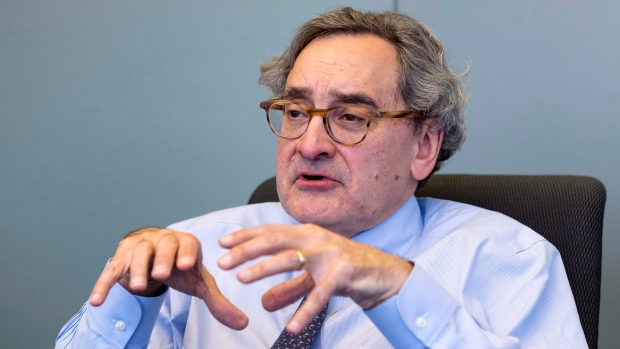Feb 21, 2018
Bombardier should be 'on alert' for M&A opportunities: Caisse CEO
Reuters

MONTREAL (Reuters) - Bombardier should be "on alert" for merger opportunities that will enable its transportation unit to compete with larger rivals in an industry that is consolidating to help reduce costs, the chief executive of its biggest independent shareholder said on Wednesday.
"I think, in an industry that's consolidating to the degree that it is and given the scale issues associated with the size of the Chinese presence in that industry, the company needs to be always alert to M&A opportunities," Caisse de depot et Placement du Quebec CEO Michael Sabia told reporters.
Germany’s Siemens AG last September opted to merge its rail business with France’s Alstom SA instead of Bombardier’s rail unit, leaving Bombardier to compete alone in a market dominated by China's state-owned CRRC, the world's largest train maker, and the combined European group.
Sabia was speaking after Canada's second biggest public pension plan reported a 9.3 per cent return on its clients' funds in 2017, helped by its equities investments.
Separately on Wednesday, Bombardier Chief Executive Alain Bellemare told a Miami conference that the company would weigh options for the rail unit. But he said there was no "rush" to consolidate since the US$8.5 billion division has the heft to compete on its own and because he does not expect Alstom and Siemens to quickly merge and benefit from synergies.
"It's going to be a very tough merger," Bellemare said of Alstom and Siemens. "We'll see when they get this approved."
The Caisse, which invests on behalf of workers and retirees in the Canadian province of Quebec, has a near 30 per cent stake in Bombardier's rail division, which reported strong earnings last week and has a US$34 billion order backlog according to recent figures.
Bellemare said the rail unit is focusing on execution.
Bombardier has been challenged by delays, with Ontario transit agency Metrolinx cutting its vehicle order following a dispute over Bombardier's ability to fulfill its contract.
The Caisse also has a 2.5 per cent stake in the parent.
The Caisse said its net assets totaled $299 billion at the end of 2017, up from $271 billion a year earlier.
The fund has diversified to become a major investor in infrastructure and real estate as well as in global equity and fixed income markets.
Sabia said it was positioned to take advantage if the prices of assets decline.
"If a correction arises I would see that as a very significant opportunity," he said.
Sabia said the Caisse was looking at possible investments in blockchain technologies but dismissed the idea of investing in bitcoin.
"I'm not signed up for lottery tickets. That's what I think bitcoin pretty much is," he said.



